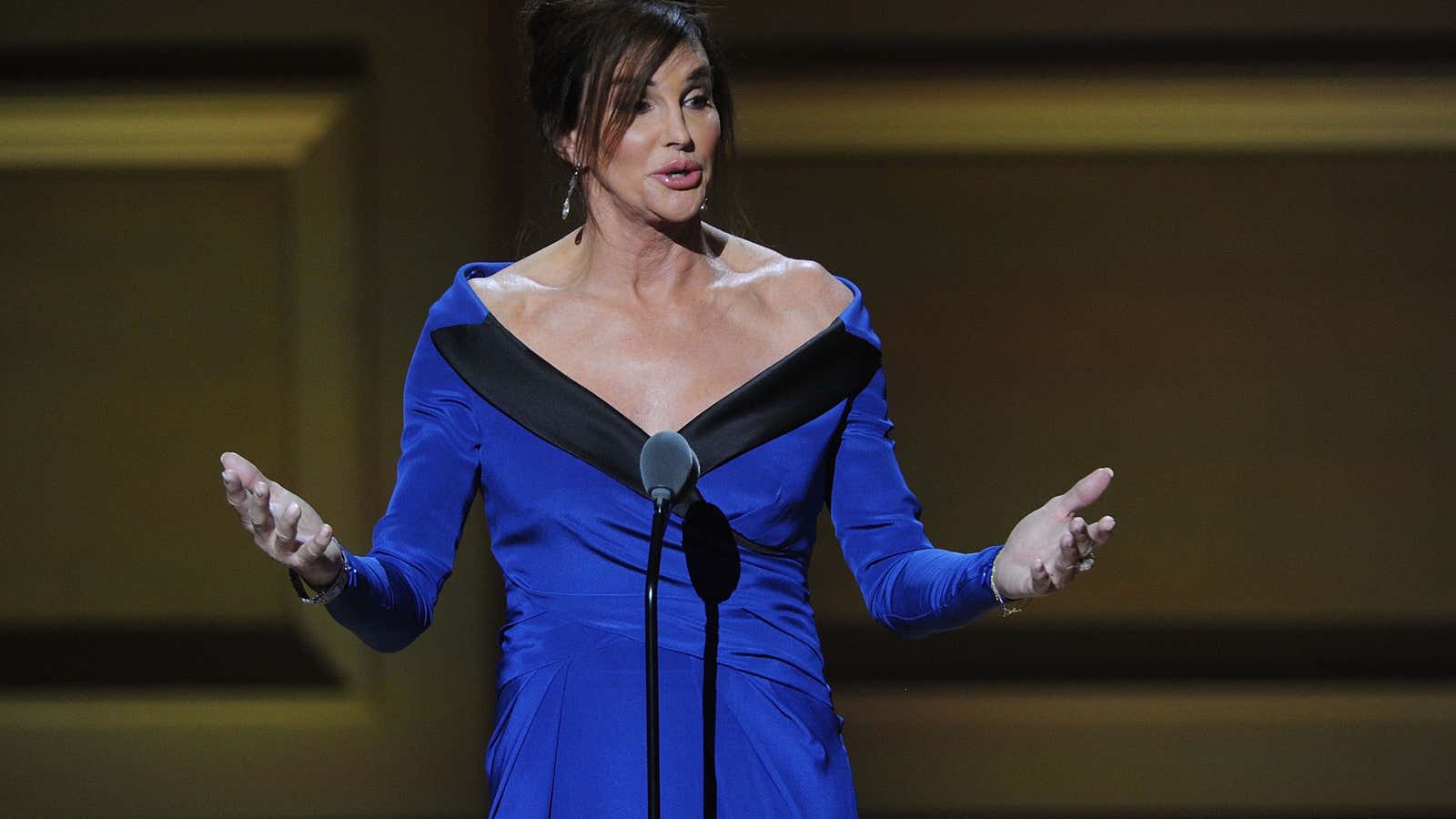Selections for recent ”word of the year” awards have thus far included a hashtag (#blacklivesmatter, chosen by the American Dialect Society for 2014) and an emoji (😂, chosen by Oxford Dictionaries for 2015).
Dictionary.com has opted for a more traditional—but still highly relevant—pick for its own word of the year this year: ”Identity.”
This morning (Dec. 8), Dictionary.com revealed “identity” as a theme that over the past year has gained outstanding traction on its site, which sees tens of millions of visitors each month. The site notes that some of this year’s most popular user lookups and newly added dictionary entries centered around words related to gender and sexuality, as well as racial identity.
“The trends that we saw linguistically all point to a larger shift in the way society thinks about identity as being more fluid, which was evidenced by the increase in related events and news headlines,” Dictionary.com CEO Liz McMillan said in a press release.
To honor its word of the year, Dictionary.com updated its definitions for the following terms:
gender expression: the external expression of gender roles, as through socially defined behaviors and ways of dressing.
code-switching: the modifying of one’s behavior, appearance, etc., to adapt to different sociocultural norms.
And it also updated the meaning of “identity” itself:
identify: to associate oneself in feeling, interest, action, etc., with a specified group or belief system (usually followed by as or with).
The site’s choice is fairly appropriate. Questions of cultural identity have weaved in and out of the news this year: Caitlyn Jenner’s appearance on the cover of Vanity Fair, the Pentagon’s announcement that transgender people could serve openly in the military, and the US Supreme Court’s ruling on the constitutionality of same-sex marriage were among the events that sparked national conversations on gender and sexuality. Racial identity has been a topic of increased interest as well, prompted by a wave of racially motivated police violence, the debate over Rachel Dolezal, and heightening racial tension at universities across the US.
But Dictionary.com’s choosing of “identity” as its word of the year isn’t just a reflection on the news—it’s also a statement, a pointed push for greater importance to be placed around certain personal and intellectual ideas that have just begun to rise to attention. The site has a history of tying its word-of-the-year picks to political and social causes, after all: Last year’s choice was “exposure.”
